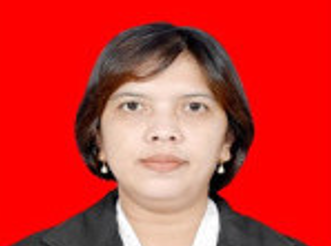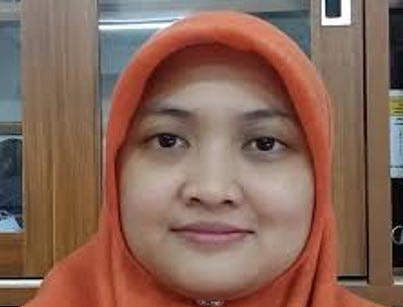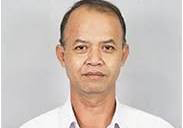92nd Doctoral Promotion
The Study Program of Doctoral Engineering Science (PSDIT) held its 92nd doctoral promotion on Friday, 18 July 2025, at the Wismakarma Hall, Faculty of Engineering, Udayana University, on Jl. P.B. Sudirman Denpasar. Promovenda Diyah Ayu Purwaningsih, with the dissertation titled Geochemical Analysis of Pit Lake Wall Rock and Its Implications on the Quality of Groundwater Quality received a very satisfactory predicate.
Dr. Diyah Ayu Purwaningsih explains that the study was conducted at the former S17 GS mining site, located in Embalut Subdistrict, Kutai Kartanegara, East Kalimantan, using a descriptive quantitative approach. The methods employed included direct observation, field measurements, and laboratory testing. A preliminary study was conducted to identify key problem areas, with site selection based on geological conditions, the presence of a pit lake, and indications of groundwater contamination by acid mine drainage (AMD). Data were obtained through the sampling of groundwater, seepage water, river water, and water from mine voids, collected from monitoring wells. In addition, isotope analysis was carried out to trace the origin and movement of groundwater. The analysis used stable isotope approaches such as ?¹?O, ?²H, and ?³?S, along with geochemical modeling using PHREEQC software to understand changes in pH and the solubility of heavy metals.
The geochemical characteristics of rocks, particularly those containing pyrite (FeS?), play a significant role in the formation of acid mine drainage (AMD). The oxidation of pyrite produces acidic water and dissolved heavy metals, which have caused a decline in groundwater pH from 6.7 to 5.16 in recent years. Isotope analysis indicates that the groundwater is a mixture from multiple sources, not solely from precipitation. Rock fractures serve as the primary pathways for AMD contaminant migration into the aquifer system, with the migration rate determined by fracture size and hydraulic gradient. The presence of carbonate minerals such as calcite can help neutralize acidity; however, their effectiveness is limited by mineral availability, dissolution rate, and the presence of specific ions. While calcite has the potential to raise pH, extremely acidic conditions and high concentrations of heavy metals hinder its success in achieving neutrality. Therefore, groundwater quality is strongly influenced by the interaction between rock geochemistry, water dynamics, fracture structures, and the buffering capacity of minerals.
Groundwater quality has declined due to the migration of AMD into the aquifer, while the formed pit lake contains water with a pH ranging from 4.09 to 4.6. Geochemical modeling using software such as PHREEQC aids in understanding pH changes and the solubility of Fe and Mn. Further research is recommended to improve geochemical and isotopic models, as well as to implement mitigation measures for the sustainable management of AMD.
As chairman of the session is the Coordinator of PSDIT, Prof. Dewa Made Priyantha Wedagama, ST., MT., MSc., Ph.D. The promoter, co-promoters I and II are Prof. Ir. I Wayan Redana, M.A.Sc., Ph.D., IPU., ASEAN.Eng., Ir. Kadek Diana Harmayani, S.T., M.T., Ph.D., IPM, ASEAN.Eng and Prof. Dr. Ir. Eng. Ni Nyoman Pujianiki, S.T., M.T., M.Eng, respectively. Acting as examiners are Prof. Ir. I Nyoman Arya Thanaya, ME., Ph.D., Prof. Dr. Ir. I Nyoman Sutarja, M.S., IPM., ASEAN.Eng., Prof. Dr. Ir. Yenni Ciawi., Dr. Ir. I Nyoman Aribudiman, S.T., M.T., IPM., ASEAN.Eng ., Ir. Ida Ayu Made Budiwati, M.Sc., Ph.D., Dr. Cok Istri Putri Kusuma Kencanawati, S.T., M.Si., and Dr. Ida Ayu Rai Widhiawati, ST, MT. Meanwhile, Tri Anggraini Prajnawrdhi, S.T., M.T., MURP., Ph.D, is acting as an academic invitee.




FACULTY OF ENGINEERING